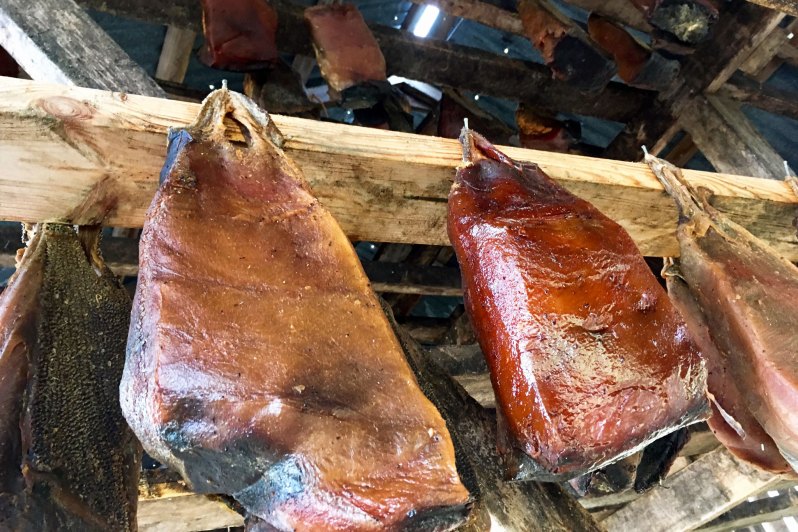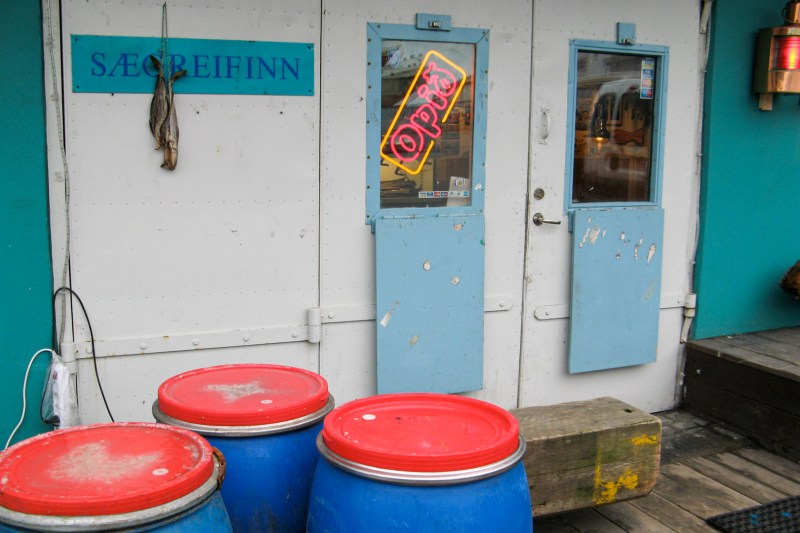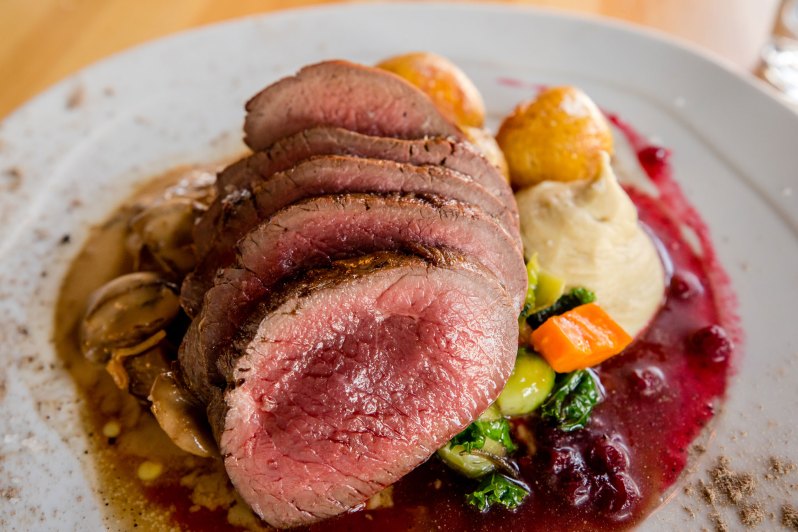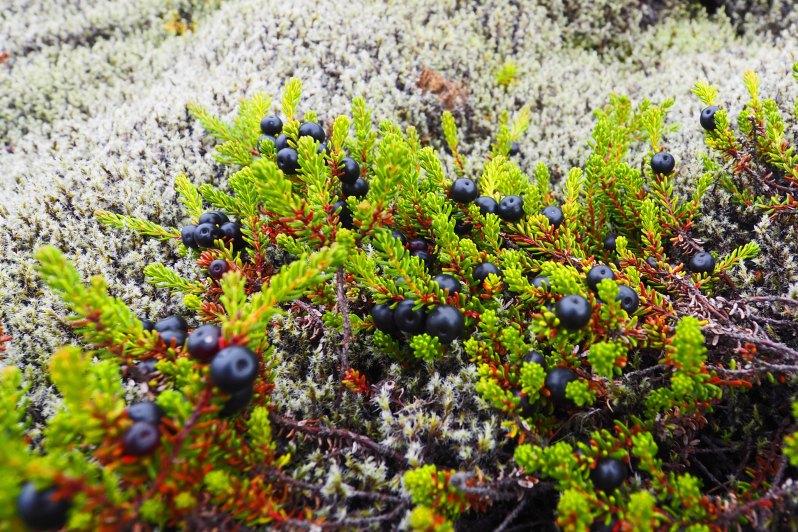Nordic cuisine burst onto the scene thanks to an inherent cool factor and some incredibly creative chefs. Bright culinary minds like René Redzepi made foraging less something hungry folks do when the pickings are slim than a food genre able to fetch the highest prices in the finest restaurants.

In Iceland, it’s a different story. Granted, the nation’s hub of Reykjavik has its own impressive cast of forward-thinking restaurants. Yet, the nature of the nation — an isolated island of volcanoes and tundra about the size of the U.K. — means you have to work with what’s there. Just about anything can be shipped in, but at a real cost. So the descendants of Vikings get creative with what’s in their backyard.
Fermented Shark
A national dish, hákarl translates to “rotten shark” in English. Hungry? It’s made from various kinds of sleeper shark that roam the cold, cold waters of the Atlantic. the shark is buried and cured for several months, fermenting naturally en route. The result is an extremely pungent dish often served in small bites, chased by Brennevín.

Tourists gag on the stuff all the time and Bourdain famously called it the worst thing he’d ever eaten. Most Icelanders see it more as a fascinating old ritual than a real snack these days. A much better way to get your Icelandic seafood fix is via lobster, which is quite cheap and plentiful there, or any number of local cod recipes (dried versions make a great snack). Minke whale can be found and eaten on the island, but it’s more of a tourist trap than a real dish.
Puffin
Come summer, Iceland and other Nordic countries are greeted by massive puffin colonies. Locals love the adorable animal (known as lundi), and don’t eat as much of it as they used to. But it’s still considered a delicacy, especially the heart. Smoked, it comes off a bit like pastrami. The hunt is perhaps the most interesting part, involving folks on cliffsides going after the coastal birds with large, butterfly net-like contraptions.

Reindeer

It’s great as a steak or gamey burger and makes a fine stew. Some Icelanders make a soup of reindeer, especially around the holiday stretch. And before you freak out about enjoying a taste of Rudolph, know that they roam the open lands of the eastern part of the country. It’s a little like eating elk or antelope here in the states. There are some intriguing recipes online and most suggest that if you can’t find reindeer, substitute deer. A great reference is this cookbook.
Boreal Fruits
A lot of Icelandic produce is grown in greenhouses. But there are some natives too, like crowberries, a subarctic edible that imparts a fresh air of brightness to all it touches. It can make for a great liqueur or syrup to top any number of Icelandic breads. The fruit can also be concentrated and served as a lovely complement to another Icelandic staple in lamb.

Juniper berries function much the same way, offering a bit more in the way of herbaceous flavors. There’s also the bilberry, which the northernmost winery in the world likes to use. It’s like a blueberry, only smaller, like so many boreal things. There are wild strawberries, too, though they are tougher to come across. All of these little fruit work wonderfully with the many root vegetables and wild herbs that exist in the area. And if you don’t believe me, check out an always-entertaining episode of New Scandinavian Cooking.
You can find some of these ingredients at specialty butchers and Scandinavian stores stateside. Alternatively, you can always honor Viking tradition with a good hot dog and beer.


